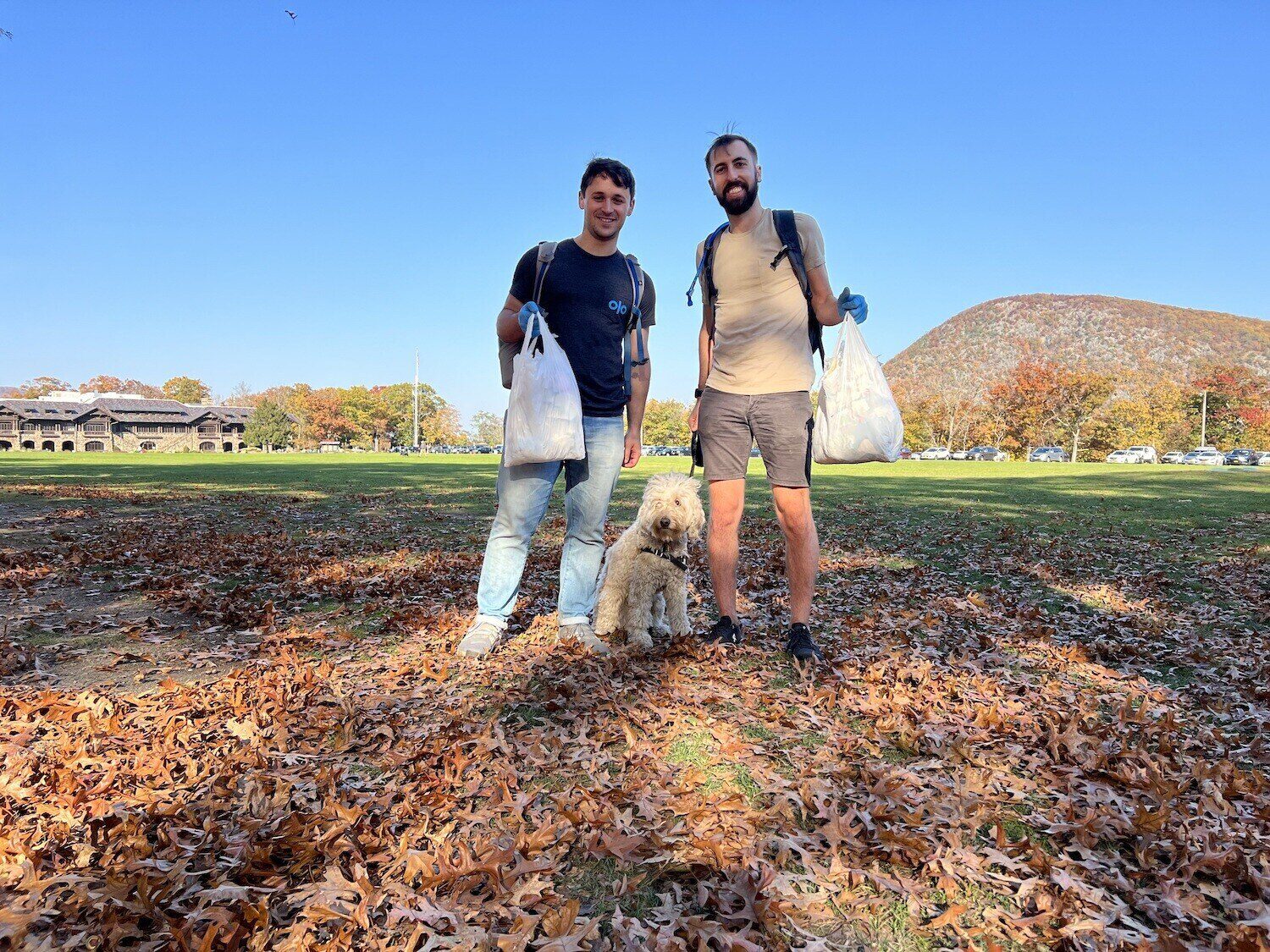
This article outlines:
How Team Olo is working to reduce our environmental impact
10 ways restaurants can be more sustainable
20 things we can do to help the planet during Earth Month and year-round
At Olo, we believe the future of digital hospitality is sustainable. We’re committed to shaping its evolution by aligning our products, resources, and employees to drive positive change and create a more sustainable future.
On a macro level, our ESG work includes reducing our company’s carbon footprint and identifying opportunities to lessen the environmental impact in our value chain by way of our platform. Additionally, Olo For Good supports nonprofits aligned with our mission and values, including protecting natural resources and reducing waste and emissions.
On a micro level, Olo Green, one of our employee resource groups (ERGs), promotes environmental awareness and empowers Oloites to have an eco-conscious mindset in their daily lives. And Olo’s Volunteer Time Off (VTO) Policy encourages Oloites to contribute up to eight, paid hours per calendar year with eligible organizations of their choosing in their local communities.
In honor of Earth Month, we asked the Olo Green leads—Alex Ray, Customer Support Training Team Lead, and Camille Stone, Customer Support Onboarding Specialist—to share a few ways that restaurant brands and we, as individuals, can be better stewards of the environment.
How Restaurants Can Be More Sustainable
There are countless ways that restaurant brands can reduce their environmental impact, including managing food waste and consumer packaging waste. And as a technology partner for the industry, we recognize that the touch points of our platform can lend themselves to enabling these types of waste reductions.
For example, we responded to California regulatory developments on single-use plasticware in 2021 by rolling out a menu feature that allows brands to require guests to opt-in for single-use utensils and condiments.
Here are some additional ways that restaurant brands can be more sustainable this Earth Month and year-round:
- Replace standard light bulbs with LEDs or smart bulbs where possible.
- Offer rewards programs or discounts for using refillable cups or containers. For instance, at Starbucks, you can get $0.10 off your coffee and 25 stars if you’re a Rewards member by bringing a clean, reusable mug/cup.
- If you manage your own delivery fleet, consider order batching so one delivery person can fulfill multiple orders in a single trip.
- Use digital menus and/or QR code ordering to cut down on paper.
- Donate leftover ingredients and uneaten food to soup kitchens, food banks, homeless shelters, and religious organizations. Panera, for example, donates unsold baked goods to local nonprofits each night.
- Use local, seasonal products and/or grow your own produce.
- Set the temperature on your A/C one degree higher. According to the World Economic Forum, the direct and indirect emissions from room A/Cs alone could contribute to as much as a 0.5 degree Celsius increase in global warming by the year 2100.
- Add meatless options to the menu to protect the environment from damage caused by livestock farming and fishing practices.
- Choose compostable to-go containers, napkins, coffee cups, and disposable cutlery.
- Upgrade to eco-friendly equipment and appliances to save water and energy.

20 Easy Ways We Can All Show Earth Some Love
Ultimately, it’s up to all of us to protect the environment. While the issues facing our planet can feel overwhelming at times, if we each do our part and make more eco-friendly choices each day, we can make a real difference. Here are just a few examples:
- Recycle to keep useful materials out of landfills, conserve energy, and protect natural resources.
- Bring a bag and a grabber to pick up trash on neighborhood walks.
- Upcycle. In other words, take something old and create something new, increasing the original object’s value. For instance, propagate plants using empty yogurt containers. Here are some more ideas.
- Volunteer with a local environmental organization, organize a DIY cleanup at a local park or trail or plant a tree in your community.
- Buy second-hand goods at thrift stores instead of new garments, toys, and other items to reduce energy consumption, landfill waste, and air pollution.
- Reduce single-use plastic. Skip the plastic straw, drink out of a reusable water bottle, bring reusable grocery bags, etc.
- Open a window instead of using the A/C or raise the temperature on your A/C by one degree to reduce greenhouse gas emissions.
- Turn off your computer when not in use.
- Donate to an environmental organization, such as:
- Appalachian Trail Conservancy
- Natural Resources Defense Council
- Clean Air Task Force - Eat more plant-based meals. According to the Stanford Report, if everyone in the U.S. ate no meat or cheese just one day a week, it would have the same environmental impact as taking 7.6 million cars off the road.
- Remove local invasive species from your garden and propagate native plants.
- Eat local, seasonal fruits and vegetables. The further food has to travel, the more energy is required to transport, refrigerate, store, and package it to keep it fresh.
- Purchase minimal-waste products. For example, shop bulk bins for things like beans and spices at the grocery store instead of buying small glass or plastic containers.
- Check the library for things you will only use once. Most libraries rent accessories, small appliances, activity kits, and more.
- Compost at home. Get started in 5 steps.
- Drive less to reduce greenhouse gas emissions and save money. Remote work can help. (Did you know 75% of Oloites work remotely across the U.S.?)
- Cancel inactive subscriptions and accounts to reduce your carbon footprint.
- Purchase reusable products, such as rechargeable batteries, paper towels, face wipes, etc.
- Reduce food waste by only shopping for what you’ll actually eat, getting creative with leftovers, and freezing excess food.
- Hang-dry clothes instead of using the dryer.
Learn more about Olo’s ESG efforts, get to know our employee resource groups (ERGs), and help us create a more sustainable future.
Photo Credits: (Main Image) Ambitious Studio - Rick Barrett; (Second Image) Ben Vaccaro and Jeremy Elson
